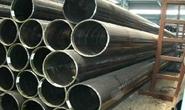Government/Policy

March 14, 2017
Turkey Challenges U.S. OCTG CVD Duties
Written by Sandy Williams
Turkey has filed a complaint with the World Trade Organization against U.S. countervailing duties placed on imports of pipe and tube products. Turkey requested the WTO initiate dispute consultation with the United States alleging the U.S. determination and imposition of duties was inconsistent with the WTO’s Agreement on Subsidies and Countevailing Measures (SCM Agreement) and the General Agreement on Tariffs and Trade (GATT) 1994.
The complaint covers certain Oil Country Tubular Goods (OCTG), Welded Line Pipe, Heavy Walled Rectangular Welded Carbon Steel Pipes and Tubes and Circular Welded Carbon Steel Pipes and Tubes.
In the complaint, Turkey says the U.S. did not consider all relevant information on pricing for hot rolled steel which is used in manufacturing pipe, was inconsistent with the SCM Agreement in using facts available and adverse inferences in calculating subsidy rates, and inappropriately based its injury determinations on cumulated imports which included imports from countries not subject to CVD investigations or reviews.
The complaint covers CVD determinations made on a the various products and in sunset reviews between 2014 and 2016
In January 2017, Namik Ekinci, chairman of the Turkish Steel Exporters’ Association, wrote an op-ed for Global Trade Magazine stressing that the Turkish steel industry is composed of “private companies that are in no way subsidized by the government.”
Wrote Ekinci,“The U.S. not only imposes duties without a good cause but also makes amendments in its trade case legislation in favor of domestic producers. To this end, the US trade case authorities decided on unsatisfactory grounds that Turkish steel companies failed to cooperate and started to arbitrarily charge high margins on our companies in the light of “facts available”. The final decisions of almost all trade cases are taken to the relevant U.S. court (the Court of International Trade) on grounds of unlawfulness, and our companies are obliged to seek their rights before this court.”
Ekinci added, “Employing the trade remedy system in a way to prevent fair competition means undermining the WTO rules. We think this attitude by the U.S. sets a bad example for other countries and jeopardizes global free trade.”







